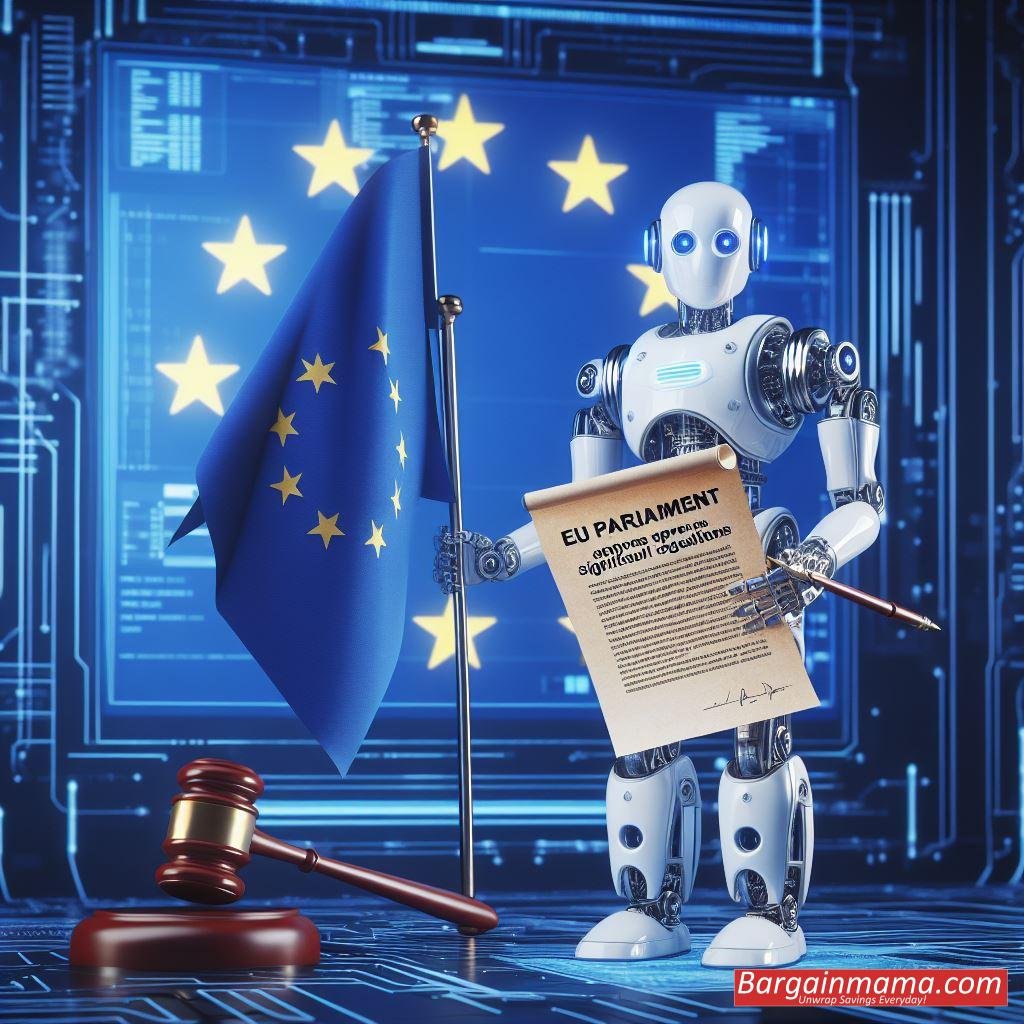The European Parliament has finally approved full legislation controlling artificial intelligence (AI) within the European Union, which is a historic move. The Artificial Intelligence Act, a ground-breaking piece of legislation, was approved by a resounding majority of MEPs on Wednesday.

The rules, which were first put forth in 2021, are intended to protect EU people from the possible dangers associated with the quick development of AI technology while still encouraging innovation within the EU. The introduction of the bill coincides with a global AI arms race spurred by the development of platforms such as Microsoft-backed OpenAI’s ChatGPT.
The proposal received a substantial amount of support, with 523 MEPs voting in favor, indicating the general recognition of the significance of AI legislation, with only 46 parliamentarians voting against.
High-impact and high-risk AI systems will have to abide by EU copyright laws and strict transparency requirements under the new regulations. Interestingly, the rules cover both basic models and generative AI (OpenAI, for example), which is trained on large datasets to produce content and carry out different tasks.
Furthermore, the law restricts the use of real-time biometric surveillance in public areas, limiting its applicability to particular situations like thwarting terrorist threats and fighting major crimes. It is strictly forbidden for the government to employ AI for predictive policing or to profile people based on traits like sexual orientation, race, or religion.
The European Council is anticipated to formally approve the legislation by May once it has been approved by the Parliament, and full implementation is scheduled to occur 24 months after the legislation is enacted.

The legislation was praised by Italian legislator Brando Benifei, who highlighted the delicate balance between innovation and protection, as a crucial step towards assuring the safe and human-centric development of AI. Likewise, Dragos Tudorache, the MEP from Romania, emphasized the significance of opposing corporate lobbying endeavors in order to preserve the integrity of the legislation.
EU Internal Market Commissioner Thierry Breton affirmed Europe’s leadership in setting global standards for reliable AI, and he applauded the Parliament for supporting the EU AI Act. Breton highlighted the risk-based approach of the legislation, in which the degree of risk posed by AI systems is reflected in the stringency of requirements.
Regulation violations may incur heavy fines of up to 35 million euros, depending on the severity of the offense and the size of the violating organization.
The EU persisted in creating a fair and future-proof legislative framework in the face of fierce lobbying from a variety of stakeholders, including tech behemoths and AI startups. Although they voiced concern about possible rule weakening brought on by corporate influence, watchdogs expressed confidence in the legislation’s ability to withstand such demands.
The European Union’s efforts to appropriately regulate artificial intelligence have achieved a major milestone with the ratification of the Artificial Intelligence Act. This sets a precedent for global AI governance and guarantees the ethical and transparent deployment of AI technology within the EU.




